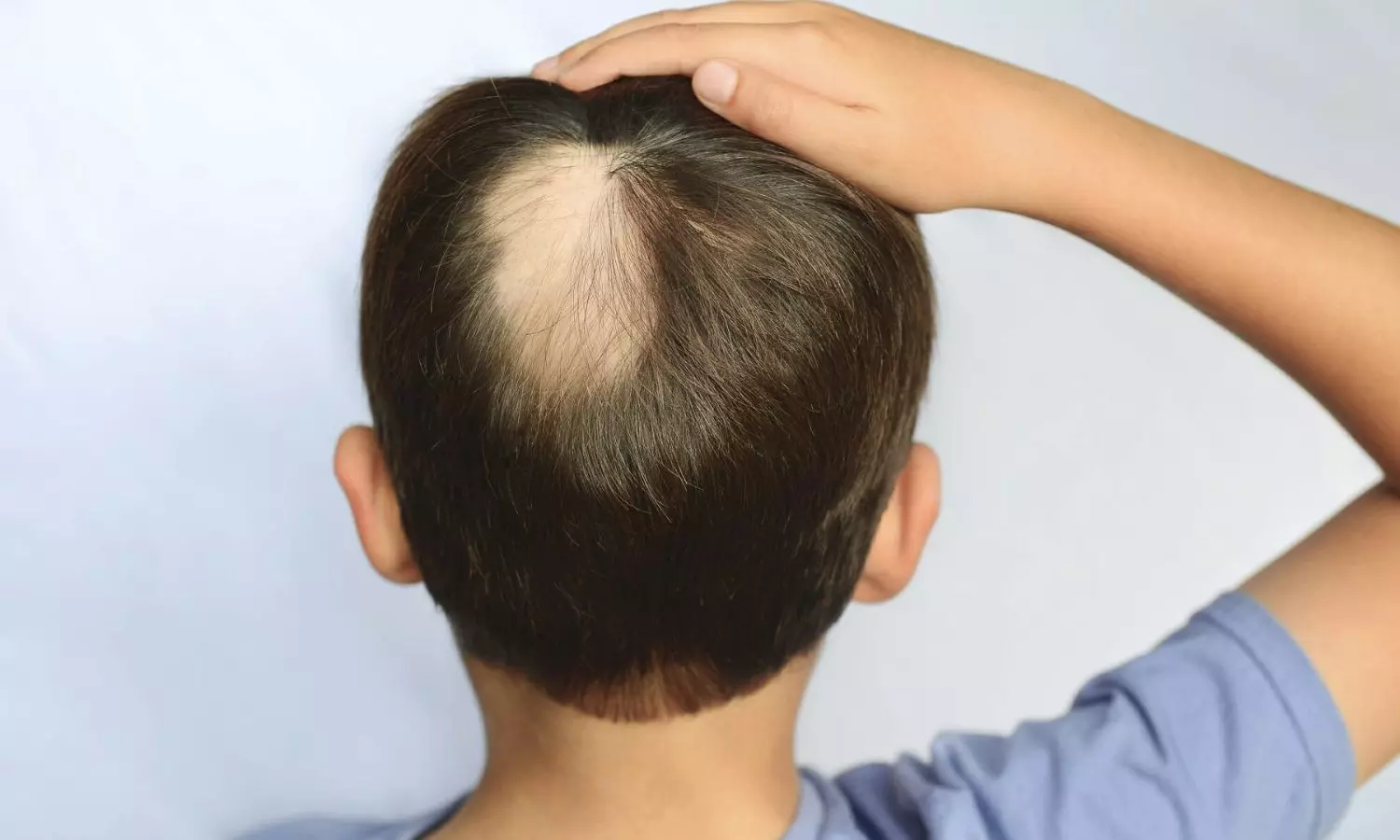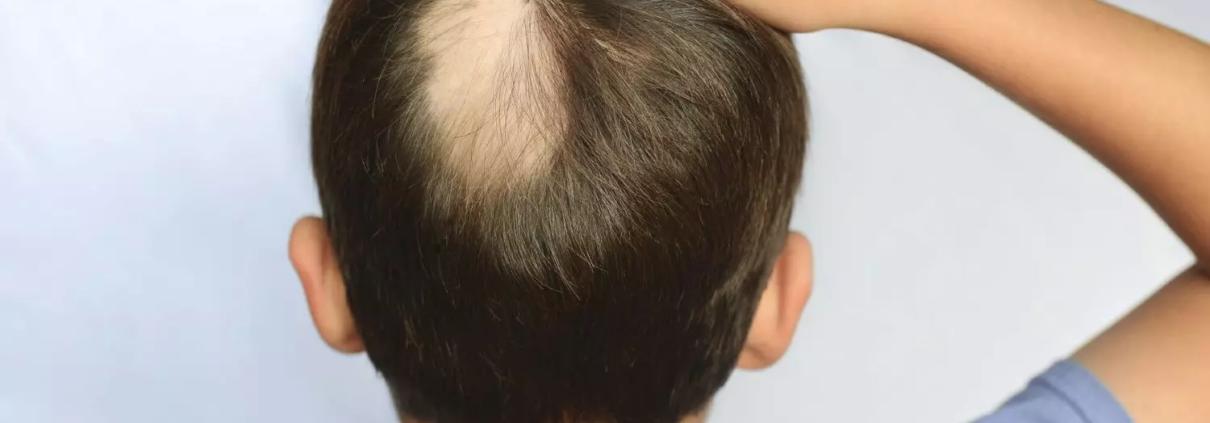Topical corticosteroids treatment under occlusion effective in pediatric patients with severe Alopecia Areata: Study

A new study published in the journal of Clinical and Experimental Dermatology showed that a strong topical corticosteroid (TCS) occlusion may be effective against severe alopecia areata (AA) in pediatric patients. One of the most prevalent dermatological conditions in children is alopecia areata (AA), which is caused by an autoimmune attack on the hair follicles that is mediated by T cells. Youngsters and their families undergo psychological suffering as a result of AA’s poor clinical course in youngsters. The treatment regimens for AA, especially for severe AA, such as alopecia totalis (AT) and alopecia universalis (AU), are not universally agreed upon. High-potency topical corticosteroids (TCSs) are the most often utilized therapy for childhood AA in clinical practice.
Strong TCSs under occlusion have been the subject of a few prior investigations in cases with severe AA, however, there is currently little information regarding their safety and effectiveness in children under the age of ten. Thus, Young Yoon Lee and colleagues undertook this retrospective investigation to see if TCS treatment under occlusion would be a viable and safe therapeutic alternative for children with severe AA.
This study looked into the medical records of 23 children with AT or AU who were treated with a strong TCS for 8 hours while being covered with a plastic sheet. The research assessed clinical improvement using the Severity of Alopecia Tool (SALT). A SALT score of less than 20 at six months was the main outcome. To determine the long-term safety of TCS treatment on the hypothalamus–pituitary–adrenal axis, the study examined the shift in cortisol levels.
At 6 months, 19 out of 23 patients (83%) achieved SALT ≤ 20. During the 6-month follow-up period, 6 patients experienced a recurrence. Adrenal insufficiency was suspected in 4 cases. However, following a month of reducing the strength of TCS or switching to nonsteroidal therapies, the patients’ cortisol levels returned to normal. Also, the limited sample size and retrospective design were among the limitations observed. Overall, with cortisol levels monitored during the therapy and follow-up periods, this study indicates that a strong TCS administered under occlusion may be safe and effective in treating severe forms of AA in pediatric patients.
Source:
Lee, Y. Y., Lim, H. H., Son, S., Jin, S., Shin, J.-M., Hong, D.-K., Jung, K. E., Seo, Y.-J., Lee, T. K., Kim, Y.-M., & Lee, Y. (2024). Efficacy and safety of topical corticosteroid treatment under occlusion for severe alopecia areata in children: a single-centre retrospective analysis. In Clinical and Experimental Dermatology (Vol. 49, Issue 10, pp. 1125–1130). Oxford University Press (OUP). https://doi.org/10.1093/ced/llae085



